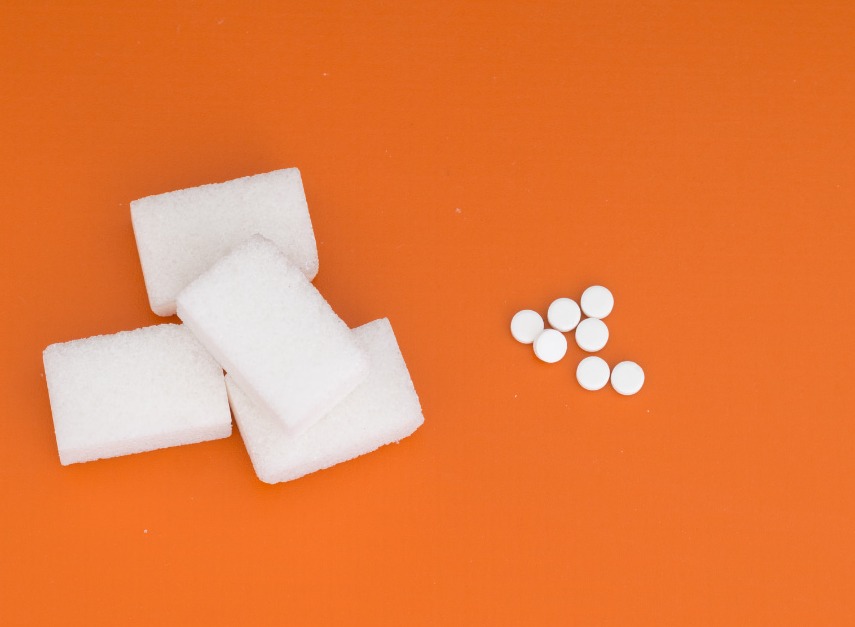- Home
- Share
- Forum
- General forums
- Good to know
- 10 ways to improve your memory
10 ways to improve your memory
- 313 views
- 1 support
- 7 comments
All comments
![]()
bazzarazza
![]()
bazzarazza
Last activity on 25/09/2019 at 09:04
Joined in 2015
1 comment posted | 1 in the Good to know group
Rewards
-
Explorer
where can I get iron tablets
![]()
cassydee
Good advisor
![]()
cassydee
Last activity on 22/06/2021 at 15:46
Joined in 2017
17 comments posted | 3 in the Good to know group
1 of their responses was helpful to members
Rewards
-
Good Advisor
-
Contributor
-
Messenger
-
Explorer
I think you can easily find it at a pharmacy in the form of supplements. but you'd better talk to your physician, I once had to take iron supplements, which caused lots of problems like constipation and such so we had to reduce the doses a lot
![]()
Mullys
![]()
Mullys
Last activity on 30/12/2024 at 11:54
Joined in 2016
4 comments posted | 3 in the Good to know group
Rewards
-
Explorer
Holland & Barrett sell two different liquid iron supplements one of which I find fine on my stomach. I can't take ferrous sulphate tablets. Ask the assistants to show you the one easy on your tum!

BAZWHEAT
Good advisor
![]()
BAZWHEAT
Last activity on 16/04/2025 at 11:49
Joined in 2015
118 comments posted | 33 in the Good to know group
23 of their responses were helpful to members
Rewards
-
Good Advisor
-
Contributor
-
Committed
-
Explorer
-
Evaluator
-
Friend
Consult the pharmacist at your local chemist. The pharmacist is well qualified to advise one about supplements .
See the signature
bazwheat
![]()
Gisella
![]()
Gisella
Last activity on 18/02/2021 at 15:53
Joined in 2017
4 comments posted | 4 in the Good to know group
Rewards
-
Explorer
Drink nettle tea it has LOTS of iron in itself and it is kinder then iron capsules
![]()
Gisella
![]()
Gisella
Last activity on 18/02/2021 at 15:53
Joined in 2017
4 comments posted | 4 in the Good to know group
Rewards
-
Explorer
Beware of overdosing on iron!! It can seriously damage your liver and kidneys! Always check with a bood test BEFORE improvising cures. A plate of spinach or broccoli can do no harm, a box of iron pills over the counter CAN!!

lesmal
AmbassadorGood advisor
![]()
lesmal
Ambassador
Last activity on 18/04/2025 at 12:56
Joined in 2018
1,461 comments posted | 131 in the Good to know group
69 of their responses were helpful to members
Rewards
-
Good Advisor
-
Contributor
-
Messenger
-
Committed
-
Explorer
-
Evaluator
I have always found that by having a diary and writing things down helps me remember. Also, taking a break from the cell phone/laptop is a good idea as it gets one's mind concentrating on another subject. Thank you for the tips.
See the signature
Les
Give your opinion
Survey
Articles to discover...
Subscribe
You wish to be notified of new comments
Your subscription has been taken into account








Margarita_k
Community managerGood advisor
Margarita_k
Community manager
Last activity on 07/10/2020 at 11:39
Joined in 2016
1,195 comments posted | 118 in the Good to know group
1 of their responses was helpful to members
Rewards
Good Advisor
Contributor
Messenger
Committed
Explorer
Evaluator
As we get older, it is only natural that our capacities gradually decline, as does for example our ability to memorize and to remember.
It can take us longer to look for a word, or we can forget what we were going to do when we enter the kitchen, etc. We can't help aging, but we can definetely help our brain fight with memory problems by exercising.
Here are some useful tips to train and improve your memory. If you follow them, let us know how it works
1) Stop multitasking
When our memory fails us, it’s often because we weren’t fully paying attention when we first took the information in. This explains those moments when you get to work and can’t remember whether you locked the front door - you were distracted by other thoughts while you were doing it. So don’t fall for the illusion of multitasking. Be mindful, and concentrate on one thing at a time. “If you’re trying to pay attention to two things, you’re not going to remember either of them as well as you would if you actually focused on one subject,” says Dr Wassman, a leading researcher in aging and contributor to a new book, Staying Sharp for Dummies.
2) Write by hand
Many people report that simply writing something down - a shopping list, for example - helps them remember it later. “It serves as a visual cue for the brain,” says Dr Wassman. Studies at Indiana University suggest that handwriting activates more regions of the brain than typing. This is probably because the brain has to process and reframe the information before writing it down. So pick up a pen.
3) Nap
Sleep is vital for consolidating memories, and research shows that taking a nap after learning some information helps us to retain it. A 2011 trial at the University of Lubeck in Germany found that people who took a nap after looking at a set of picture cards could remember 85 per cent of the images, compared with 60 per cent among those who didn’t sleep.
4) Take regular tech-breaks
Smartphones and devices vie for our attention, making it harder for us to concentrate on a task and think clearly. Research by the psychologist Glenn Wilson has found that working on a task while knowing an unread email is sitting in your inbox can reduce your effective IQ by 10 points. So resist the urge to constantly check your messages and notifications and take regular digital detoxes.
5) Chew gum
Some studies suggest that people do better on short and long term memory tests when they chew gum throughout. It’s not clear why - but it may simply be that chewing increases heart rate, which increases the oxygen supply to the brain.
6) Take exercise
It’s now widely agreed that a healthy diet - rich in fruit, vegetables and healthy fats from nuts, fish, and olive oil - and regular exercise is vital for healthy brain function. A study at the University of British Columbia, researchers found that regular aerobic exercise boosts the size of the hippocampus, the area of the brain involved in verbal memory and learning. Try brisk walking or jogging.
7) Meditate
Stress is terrible for memory - not only because excessively high levels of stress hormones such as cortisol seem to impair function, but also because when we’re stressed, we’re less able to take information in, and thus more likely to forget things later. Scientists at Harvard Medical School have found that meditating has positive effects on our ability to remember and incorporate facts. They report that people who practice meditation are more able to screen out everyday distractions, so that more important information can be processed.
8) Play brain games
By the time you’re an adult, you probably have a routine carved out. Get up, go to work, come home, be with family. These habits work because you’ve done them over and over, and they use the same neural pathways in your brain. Shaking up this routine can stimulate your brain so it keeps developing. Find brain teasers, or do sudoku and crossword puzzles in the paper. There are an influx of websites and game cartridges that will help you use your brain in different ways. Brain games don’t have to be on a computer or handheld device! Taking a new way home from work, visiting different places over the weekend, and reading different types of books will also activate lesser-used areas of the brain. Anything that’s new, fun, and challenging will stimulate your brain.
9) Seek variety and challenge
Brain games, crosswords and other puzzles are all good ways to exercise the brain and keep it sharp. But it’s a waste of time if you don’t find it challenging. “It’s just like exercising the body - you don’t strengthen your muscles unless you lift a weight you find hard,” says Dr Wassman. So whatever you do, make sure it’s slightly above the level you find comfortable. Variety is important too: try out unfamiliar subjects, take a different route to work, spend time with people outside your familiar circle. The activity with perhaps the best evidence of all for its effects on cognition and memory is to learn a new language.
10) Have a healthy iron level
Iron deficiency can have adverse effects on brain function, including attention and memory issues. Studies have shown that people who have low iron levels and took memory tests took longer to finish these tests, as well as scored significantly lower than people with normal iron levels. Thankfully, taking an iron supplement easily reverses these negative points. In that same study, people who took supplements scored at a normal level just a couple of months later.
Sources: telegraph.co.uk; lifehack.org